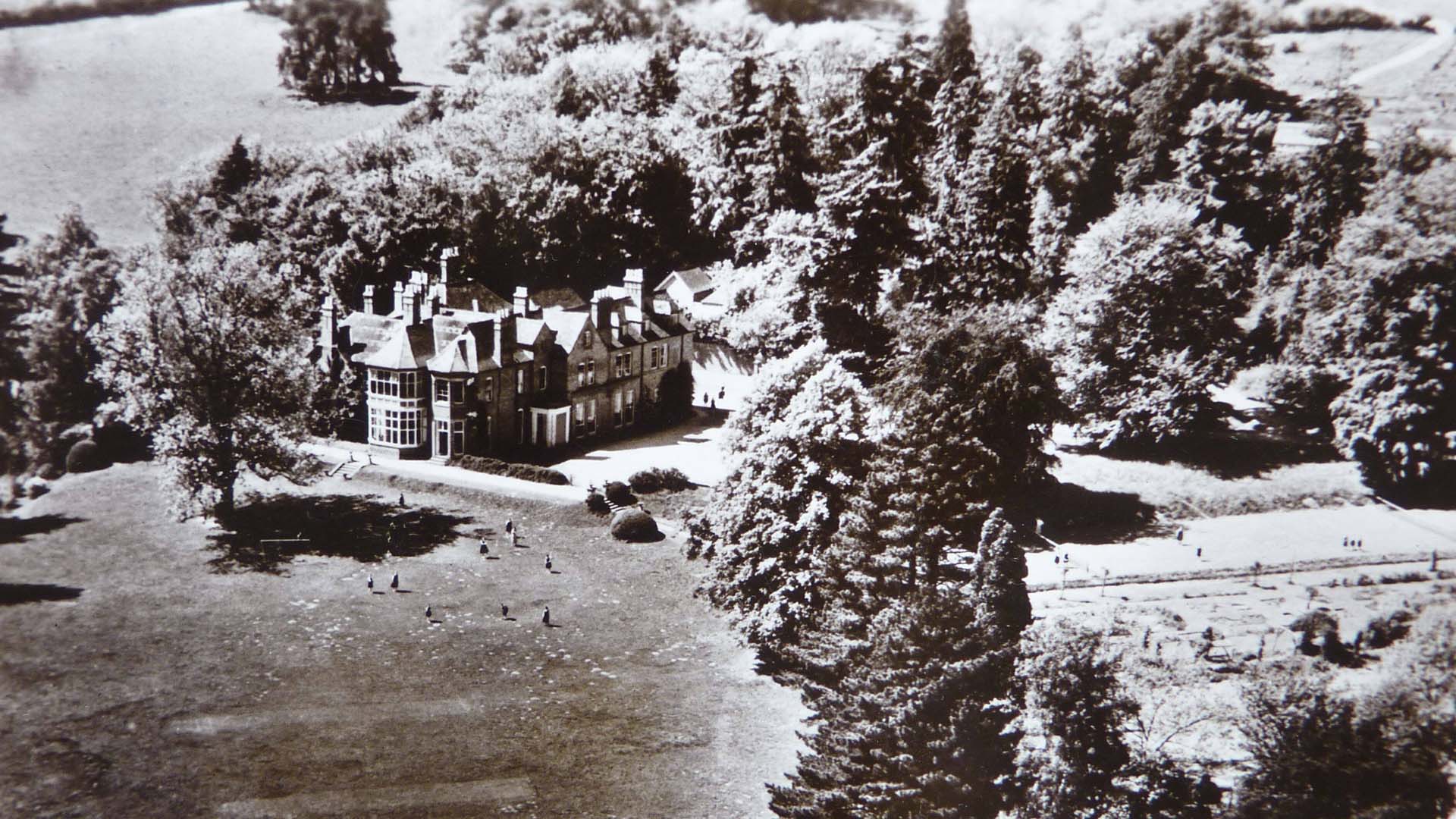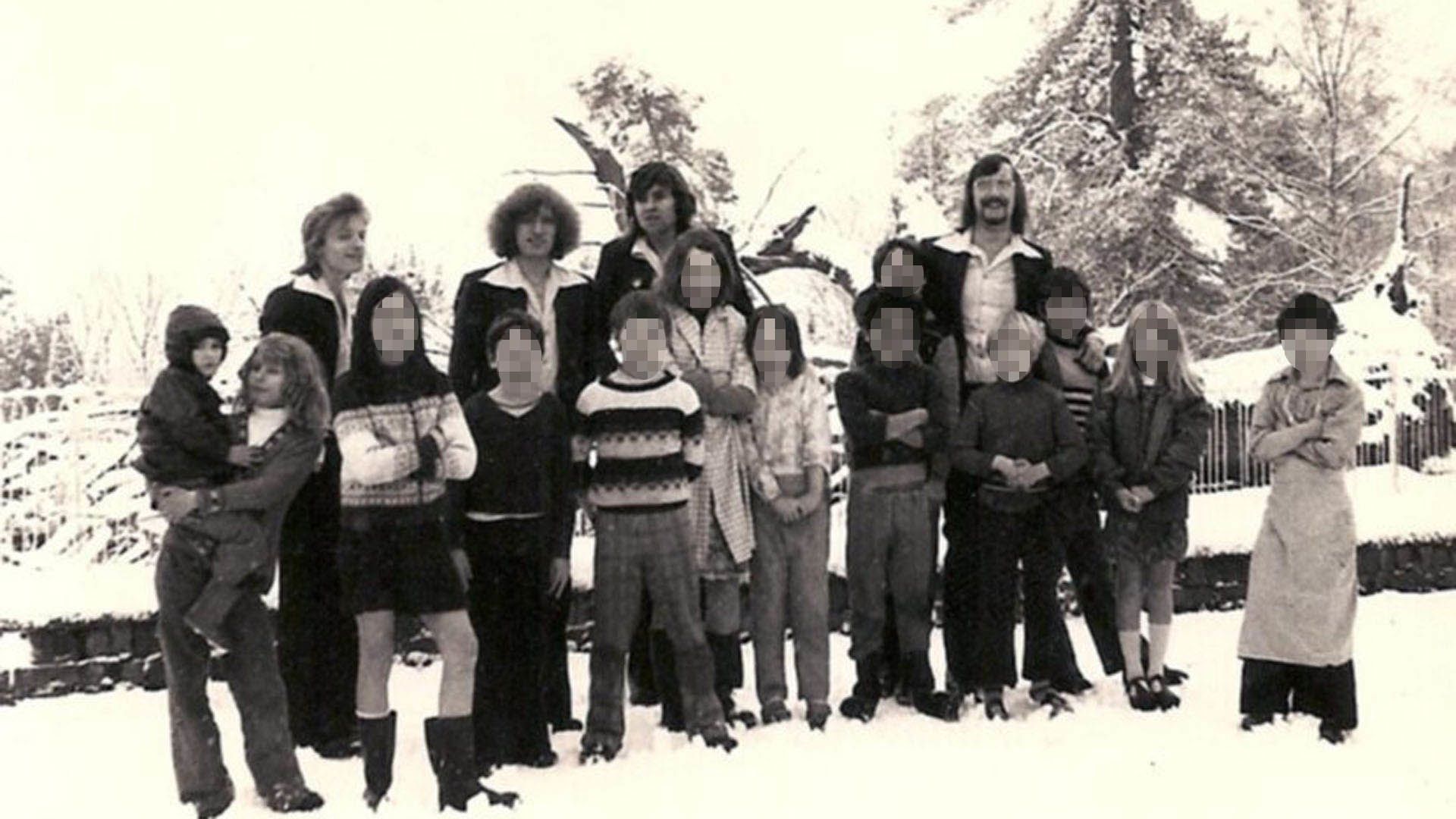The boarding school ‘monster’ who always walked free
The two girls ran as fast as they could, fleeing through the dense forest to avoid being spotted by anyone at the school.
Reaching a phone box by the main road, they unfolded the piece of paper they had been given weeks earlier and dialled the number hastily scribbled on it.
They hid behind a wall and waited for their saviour to arrive. When she did, she took them to the police station. The girls told officers their headmaster had raped and sexually abused them repeatedly for two years. Physical tests backed up their claims.
They were 10 and 11 years old.
Gail Marshall and Marina Musker were among dozens who claimed they were raped, sexually abused and beaten in the 1960s and ‘70s at Brookside School for Maladjusted Children in Shropshire.
Branded disturbed and dysfunctional, the children had been sent to the prestigious-looking institution in the countryside by councils, probation services and sometimes their own frustrated parents.
The man they say was responsible for the abuse, head teacher Jack Mount, was charged with almost 100 sexual offences during his lifetime.
He was investigated seven times by police over six decades and went on trial five times - the last in 2016 when he was aged 97 and, at the time, the oldest person ever to be prosecuted for historical sexual abuse in the UK.
Every time, juries and judges found in his favour.
Jack Mount is now dead, having lived to the age of 100.
Those who say they were abused by him say they have spent their lives not being believed.
But a number of them have waived their right to anonymity - and they are determined to finally be heard.
The following stories are distressing and contain personal accounts of childhood abuse. A range of support and help is available at the end of the article.
The ‘best jobs’
The bell summoning pupils to breakfast at Brookside School could be heard clanging across the village of Culmington every morning. Children, freshly washed and neatly dressed, filed into the grand dining room and sat down at the long benches in silence. As their head teacher took his place at the top table and picked up his cutlery, it was a signal they were allowed to begin eating. Not a crumb was to be left. Pupils who had been force-fed their leftovers knew better - just finish the food in the first place.
The boarding school was inside one of Shropshire’s finest buildings, Culmington Manor, a sprawling 19th Century stately home on a 100-acre estate. At the back of the property, a large wood towered over the leaded bay windows; to the front were rolling fields, with views of lush countryside stretching miles towards Worcestershire.
There were horses, chickens and pigs to look after, and a swimming pool, squash and tennis courts. Children who came to the school from all over England were often awestruck by the scenes that greeted them.
“I thought it sounded great,” says Philip Fowler, who was taken there in 1964, when he was nine.
Philip Fowler, second row on the right, lived at the school for six years
Philip Fowler, second row on the right, lived at the school for six years
It was home to about 37 boys when it opened in the mid-1960s. The daily routine was meticulous - the children were woken at 06:30 and called two at a time to get washed and dressed, then ordered to carry out their morning duties.
The chores, carried out after lessons too, included those that were universally detested, such as helping in the kitchen, cleaning brass ornaments, sweeping and dusting. The favoured tasks were collecting eggs from the chicken coop and tending to the horses, Grey Peter and Brown Paul, then being allowed to ride them.
Philip couldn’t understand why his roommate always got the perks of working with the animals.
“And he could stay up later and watch TV. So I asked him why,” he says.
“I’ll have a word with Mr Mount,” the boy replied.
Philip had been known as a troublemaker on the estate where he lived with his parents in Seacroft, Leeds, and he often played truant.
“I didn’t go to school much and if anyone ever said anything to me I used to back-chat, that sort of thing,” he recalls.
The final straw came when he was expelled for hitting a fellow pupil with a chair - it was decided Philip should attend Brookside, some 150 miles away, to “learn some manners”.
Philip says after the abuse started, he was given the “good jobs”, such as looking after the horses
Philip says after the abuse started, he was given the “good jobs”, such as looking after the horses
He lived there for six years, only returning home for the holidays, and for the first four, says he saw nothing untoward. Then, when he was 13, he began to notice that night after night his roommate would wait for lights out, creep out of the dorm and disappear down the corridor.
One night, he turned and whispered to Philip to follow him. When he got to the bathroom at the end of the hall, he called out to his friend, who opened the cubicle door.
“I couldn’t believe what I saw. He was ‘playing’ with Jack Mount. I just turned away and walked back to the dorm.”
Later that week, his friend asked if he wanted to join him in the cellar with Mount.
“[My friend] began playing with him again,” says Philip. “[Jack] just said ‘Philip’ - and I started doing it [for him]. I thought, right, I’m going to get all the best duties.”
The abuse escalated and became a regular occurrence. Philip was traumatised, but felt he had to comply.
“In the coach house, the greenhouse, the squash court, the chicken shed,” he recalls. “I was his blond-haired, blue-eyed boy.”
Philip says the abuse escalated in the coach house
Philip says the abuse escalated in the coach house
It was in the coach house that Philip alleges Mount raped him.
“It was empty, there were just chairs and old desks and a mattress. I knew what he was going to do and he told me ‘it’s OK, don’t be frightened’. I could hear him undoing his belt buckle.”
Philip remembers crying during the assault and breaking his fingernail in the inkwell of a desk.
“And then he was gone. He was like a ghost.”
Amadu Darbo was five when it became clear his alcoholic mother could no longer look after him. He was put into care in Moss Side, Manchester, then three years later, in 1965, sent to Brookside. More than 100 miles from his home, and without a single relative interested in his well-being, he was isolated.
“I was there for five or six years and nobody came to see me in that time,” he says. “I never went home for the holidays. I was even there on Christmas Day. I was in the middle of nowhere and left on my own with Jack Mount.”
Amadu had not been there long when his head teacher began cornering him in various parts of the school and forcing him into degrading sex acts.
“It happened in the cellar, the changing room, the cottages by the farms, the squash court, the stairs, the big barn... a lot went on in that barn,” he says.
And while he suspected other pupils were being abused, he kept silent.
“We didn’t talk about it among ourselves,” he says. “We were under the impression no-one could help us. I just kept saying to myself, ‘I have to survive, this is not going to be forever’.”
Amadu, far left, Steve Williams, second from left and Philip, back right, were all targeted by Mount
Amadu, far left, Steve Williams, second from left and Philip, back right, were all targeted by Mount
Philip and Amadu ran away time and time again, walking three miles to Craven Arms police station, or if it was shut, trekking another four to Ludlow. But instead of taking their allegations seriously, officers would contact the very person they were trying to escape from.
“They just grabbed hold of my ear and put me in a cell. And then they rang Jack Mount to come and get me,” says Philip.
The beatings afterwards were brutal. One punishment was a lashing with a hosepipe, cut into strips.
“He made us bleed and then he locked us in the blazer cupboard with a plank across the door.”
Boys would flee Brookside and trek three miles to Craven Arms police station
Boys would flee Brookside and trek three miles to Craven Arms police station
Unable to take any more, Philip’s roommate reported Mount in 1970 to a police officer who believed him. All of the school’s pupils were sent home and officers went around the country interviewing them about the alleged abuse.
“I gave them yes and no answers,” says Philip, now a 64-year-old grandfather. “I just couldn’t say it in front of my parents. They told me the school had been closed and I wouldn’t be going back there.”
Mount was arrested, kept in custody for seven days and charged with 27 offences against 12 boys. The case was sent to Ludlow Magistrates’ Court, but dismissed by a judge who painted him as the victim.
“I would like to express my admiration for [Mr Mount’s] dedication to his calling, his evident sincerity, and the complete lack of bitterness following the tragic experience he underwent at the hand of some of his charges,” the judge said. “I do not doubt his belief in anything he told me in evidence.”
Local authorities paid Mount thousands of pounds to send children to Brookside School
Local authorities paid Mount thousands of pounds to send children to Brookside School
Mount was awarded costs from public funds for his defence and, buoyed by the support, demanded an inquiry into West Mercia Police for wrongful arrest and imprisonment. When it found there had been no wrongdoing, he tried to sue the force.
Meanwhile, he went back to running his school, welcoming a fresh set of pupils. He said 35 children had been taken away by local authorities after his arrest.
“We are hoping that the school will continue and that we can repair the damage done by the police,” he told the Times newspaper. “There are 13,700 children in this country seeking places in special schools, and my concern is there are children who are suffering because they are not allowed to come here.”
It was, Philip believes, a missed opportunity.
“I can’t believe he was able to go back there.”
Maladjusted
Jack Mount was born in 1919 and grew up around the family farm near Barnsley in South Yorkshire. Living in the countryside with four brothers and three sisters was exhilarating, with days spent building tree-houses and dens, or catching rabbits and moles. In a memoir he wrote about his early life, Mount described the joy of watching Barnsley home games at Oakwell football ground, the smell of hops wafting over from the nearby brewery.
Then as World War Two loomed, a 17-year-old Mount lied about his age to join the Royal Signals. He started as a despatch rider, then became a wireless operator in France and Northern Ireland, where he met his first wife, Beth, before being posted to Italy.
It was clear from his autobiography - self-published to mark his 90th birthday - he enjoyed numerous extra-marital romances while away from home and he censored little about the many women he wooed, even including details of sleeping with a woman in Bologna while his wife was pregnant.
Curiously, he gave a copy to every family member, including Beth whom he had divorced in the early 1960s, and his grandchildren. When they questioned the gall he had in revealing his affairs, he was perplexed.
“He just said, ‘it was a long time ago, what’s wrong with you?’” his daughter Tricia recalls. “He couldn’t understand why we were so upset.”
Mount lied about his age to get into the Royal Signals
Mount lied about his age to get into the Royal Signals
Mount, a slim man who was small in stature, left the Army determined to make something of himself and embarked upon a programme of reinvention. He moved Beth, their two sons and two daughters from Northern Ireland to Birmingham, completed a degree in child psychology, and, under the impression it was damaging his intellectual image, replaced his Yorkshire accent with the clipped sounds of an educated English gent.
After completing his teacher training, he worked in schools around Birmingham and became fixated with the idea of opening his own. When Hill House School in Shropshire came up for sale, he seized the opportunity. His new school, which he named Brookside, was opened up to almost every local authority in England and would cater for vulnerable children - or those deemed “maladjusted”. It was, at the time, a term used to describe highly dysfunctional behaviour - but some of the misdemeanors that landed youngsters in Mount’s care were, in fact, relatively minor.
Stephen Hesketh was considered one such child. His mother blamed his “unruly” behaviour on falling off a church roof and badly injuring his head, aged six. He says he doesn’t remember “being that bad as a kid”, but in 1968, he was taken from Liverpool to Brookside.
“My mum said to me, ‘if you don’t like it, just tell me and we’ll go’. I looked around and it seemed to me that the kids weren’t happy. I walked into a hall with big windows and I turned to my mum to say I didn’t want to stay.”
The last thing nine-year-old Stephen recalls seeing out of those windows was his mother driving away: “She just jumped in the car and left. I’ve never known whether to blame her or Mr Mount.”
Stephen was adopted by an American army captain in 1974 and has lived in the US ever since
Stephen was adopted by an American army captain in 1974 and has lived in the US ever since
Stephen’s abuse began in much the same way as the others - while doing chores in the barn. He had gone to get hay when he heard his head teacher’s voice in the darkness.
“He asked another boy, ‘do you think he would do this?’ I ended up doing things I didn’t like. If you did, you got to have the horses and chickens. There were a lot of plusses to doing what he wanted you to do.”
He ran away three times - first to the police station, then by jumping on trains to Manchester and Liverpool. Every single time, Mount was called to take him back to Brookside.
“I thought, if I get home, mum will get the police, but she did not get the police, she called Mr Mount,” says Stephen, who later moved to Nevada when he was adopted by a US army captain. “I’d be in the back of the car knowing what was going to happen to me - he’d put me in the blazer room [and keep] me there for three to four days, maybe a week.”
On one occasion he was whipped with a bridle as punishment and passed out from the pain.
“For years I had nightmares.”
Both Stephen Hesketh and Steve Williams were approached while doing chores in the barn
Both Stephen Hesketh and Steve Williams were approached while doing chores in the barn
One boy repeatedly fought off Mount’s advances and was regularly thrown in the blazer cupboard for his disobedience.
“The window had been nailed shut, but we learned we could get out if we lifted the floorboards and crawled under the door,” says Steve Williams, who later channelled his anger about how he had been treated into teaching martial arts.
“I ran away every chance I got. I made it clear that if Mount touched me I’d scream.”
Despite this, Mount persisted. On one occasion in the barn, he encouraged Steve to look at a pornographic magazine while performing a sex act in front of him. When the young boy refused to participate, he was knocked unconscious and awoke to find his headmaster abusing him. Later that night, Mount approached Steve in his dorm room - when he pretended to be asleep, he saw Mount assault a boy in a nearby bed.
“I can say that I saw what happened with my own eyes and he was 100% guilty.”
Mount’s second wife, Elizabeth, worked at Brookside and was known as “matron” to pupils
Mount’s second wife, Elizabeth, worked at Brookside and was known as “matron” to pupils
By 1974, police had been informed of more allegations against Mount. He went on trial in the December at Shrewsbury Crown Court, charged with indecent assault, attempted gross indecency, and incitement to commit gross indecency.
Records from the period are believed to have been destroyed due to the passage of time, but it is understood he was found not guilty of one charge and a retrial was ordered on the others. He was tried again at Stoke Crown Court two months later, in early 1975, but was cleared.
For the third time, he was free to return to Brookside, where he picked up the mantle of head teacher once more. This time, he opened up the school to girls.
Maladjusted
Jack Mount was born in 1919 and grew up around the family farm near Barnsley in South Yorkshire. Living in the countryside with four brothers and three sisters was exhilarating, with days spent building tree-houses and dens, or catching rabbits and moles. In a memoir he wrote about his early life, Mount described the joy of watching Barnsley home games at Oakwell football ground, the smell of hops wafting over from the nearby brewery.
Then as World War Two loomed, a 17-year-old Mount lied about his age to join the Royal Signals. He started as a despatch rider, then became a wireless operator in France and Northern Ireland, where he met his first wife, Beth, before being posted to Italy.
It was clear from his autobiography - self-published to mark his 90th birthday - that he enjoyed numerous extra-marital romances while away from home and he censored little about the many women he wooed, even including details of sleeping with a woman in Bologna while his wife was pregnant.
Curiously, he gave a copy to every family member, including Beth whom he had divorced in the early 1960s, and his grandchildren. When they questioned the gall he had in revealing his affairs, he was perplexed.
“He just said, ‘it was a long time ago, what’s wrong with you?’” his daughter Tricia recalls. “He couldn’t understand why we were so upset.”
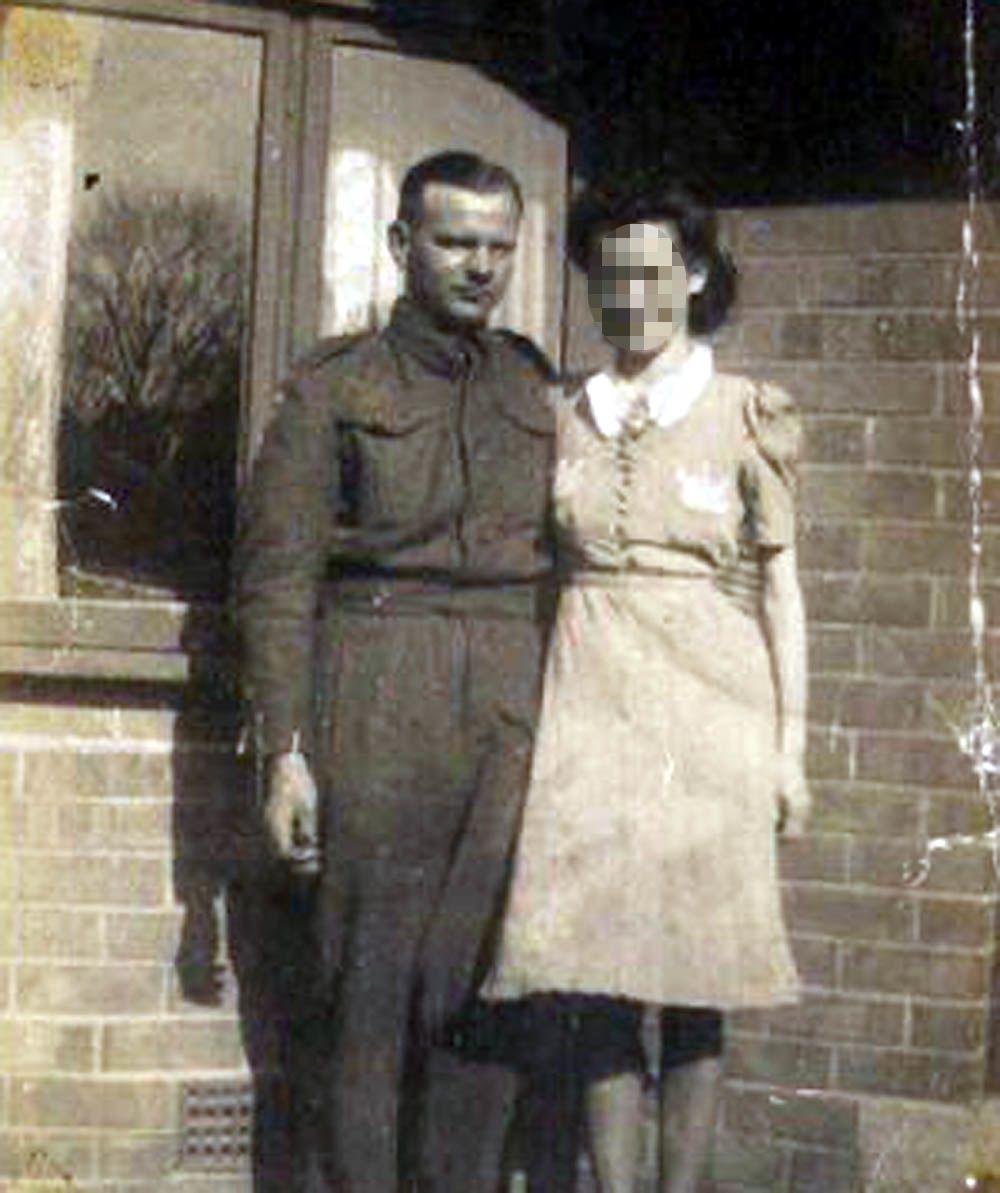
Mount lied about his age to get into the Royal Signals
Mount lied about his age to get into the Royal Signals
Mount, a slim man who was small in stature, left the Army determined to make something of himself and embarked upon a programme of reinvention. He moved Beth, their two sons and two daughters from Northern Ireland to Birmingham, completed a degree in child psychology, and, under the impression it was damaging his intellectual image, replaced his Yorkshire accent with the clipped sounds of an educated English gent.
After completing his teacher training, he worked in schools around Birmingham and became fixated with the idea of opening his own. When Hill House School in Shropshire came up for sale, he seized the opportunity.
His new school, which he named Brookside, was opened up to almost every local authority in England and would cater for vulnerable children - or those deemed “maladjusted”. It was, at the time, a term used to describe highly dysfunctional behaviour - but some of the misdemeanors that landed youngsters in Mount’s care were, in fact, relatively minor.

Mount wrote volume one, intending it to be something of a series - his family was thankful no follow-up was ever published
Mount wrote volume one, intending it to be something of a series - his family was thankful no follow-up was ever published
Stephen Hesketh was considered one such child. His mother blamed his “unruly” behaviour on falling off a church roof and badly injuring his head, aged six. He says he doesn’t remember “being that bad as a kid”, but in 1968, he was taken from Liverpool to Brookside.
“My mum said to me, ‘if you don’t like it, just tell me and we’ll go’. I looked around and it seemed to me that the kids weren’t happy. I walked into a hall with big windows and I turned to my mum to say I didn’t want to stay.”
The last thing nine-year-old Stephen recalls seeing out of those windows was his mother driving away: “She just jumped in the car and left. I’ve never known whether to blame her or Mr Mount.”

Mount was known to be very controlling
Mount was known to be very controlling
Stephen’s abuse began in much the same way as the others - while doing chores in the barn. He had gone to get hay when he heard his head teacher’s voice in the darkness.
“He asked another boy, ‘do you think he would do this?’ I ended up doing things I didn’t like. If you did, you got to have the horses and chickens. There were a lot of plusses to doing what he wanted you to do.”
He ran away three times - first to the police station, then by jumping on trains to Manchester and Liverpool. Every single time, Mount was called to take him back to Brookside.
“I thought, if I get home, mum will get the police, but she did not get the police, she called Mr Mount,” says Stephen, who later moved to Nevada when he was adopted by a US army captain. “I’d be in the back of the car knowing what was going to happen to me - he’d put me in the blazer room [and keep] me there for three to four days, maybe a week.”
On one occasion he was whipped with a bridle as punishment and passed out from the pain.
“For years I had nightmares.”

Stephen was adopted by an American army captain in 1974 and has lived in the US ever since
Stephen was adopted by an American army captain in 1974 and has lived in the US ever since
One boy repeatedly fought off Mount’s advances and was regularly thrown in the blazer cupboard for his disobedience.
“The window had been nailed shut, but we learned we could get out if we lifted the floorboards and crawled under the door,” says Steve Williams, who later channelled his anger at the way he had been treated into teaching martial arts.
“I ran away every chance I got. I made it clear that if Mount touched me I’d scream.”
Despite this, Mount persisted. On one occasion in the barn, he encouraged Steve to look at a pornographic magazine while performing a sex act in front of him. When the young boy refused to participate, he was knocked unconscious and awoke to find his headmaster abusing him. Later that night, Mount approached Steve in his dorm room - when he pretended to be asleep, he saw Mount assault a boy in a nearby bed.
“I can say that I saw what happened with my own eyes and he was 100% guilty.”
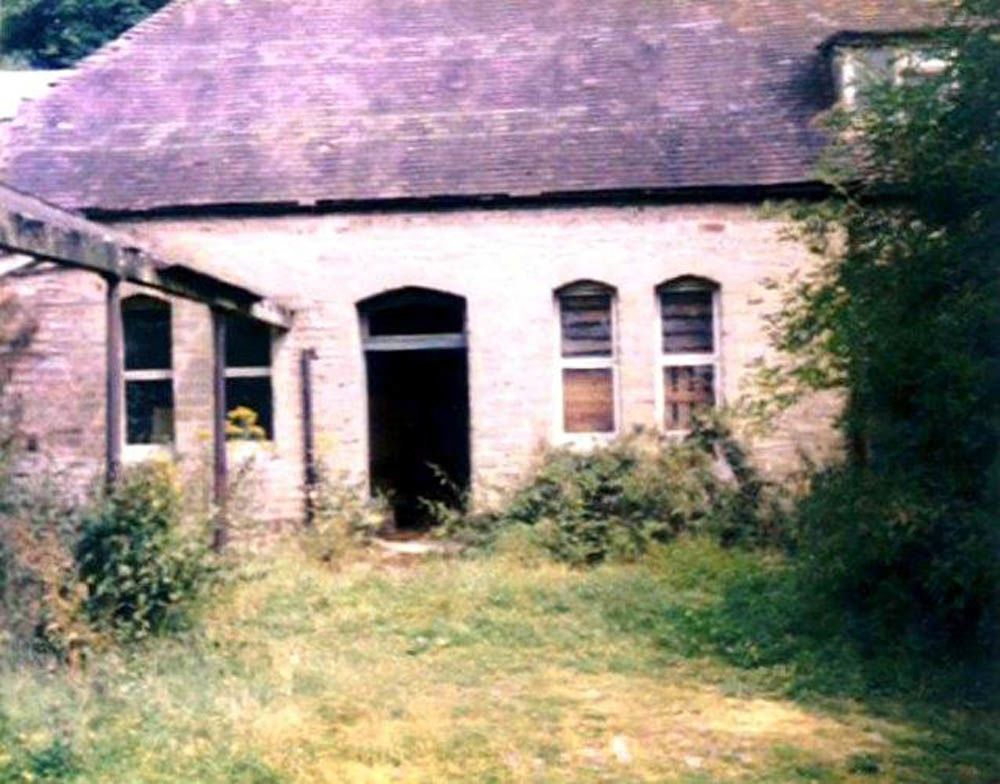
Both Stephen Hesketh and Steven Williams were approached while doing chores in the barn
Both Stephen Hesketh and Steven Williams were approached while doing chores in the barn
By 1974, police had been informed of more allegations against Mount. He went on trial in the December at Shrewsbury Crown Court, charged with indecent assault, attempted gross indecency, and incitement to commit gross indecency. Records from the period are believed to have been destroyed due to the passage of time, but it is understood he was found not guilty of one charge and a retrial was ordered on the others.
He was tried again at Stoke Crown Court two months later, in early 1975, but was cleared.
For the third time, he was free to return to Brookside, where he picked up the mantle of head teacher once more. This time, he opened up the school to girls.
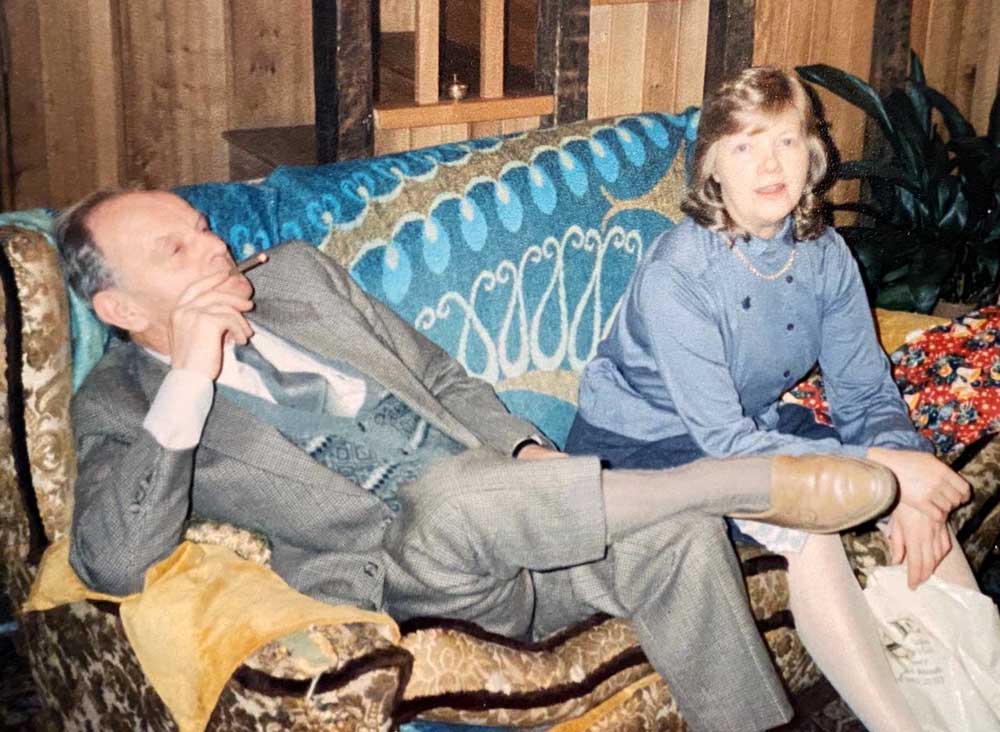
Mount’s second wife, Elizabeth, worked at Brookside and was known as “matron” to pupils
Mount’s second wife, Elizabeth, worked at Brookside and was known as “matron” to pupils
Escape
Gail Marshall had a difficult start in life. Her dad was in prison, her mum had abandoned her, and she was put in care from the age of two. She spent years in a string of local authority children’s homes and boarding schools in Leeds and Nottingham. Her life became no easier when she was sent to Brookside by Nottinghamshire County Council, aged eight or nine.
“I remember them saying I was maladjusted. I used to think, ‘maladjusted - what does that even mean?’ To this day, I don’t know why I was sent there. I think they were trying to find places to put up with me.”
Gail remembers many of the staff fondly and says the school seemed like a nice place in the beginning
Gail remembers many of the staff fondly and says the school seemed like a nice place in the beginning
There were about 15 pupils at the school when Gail joined in 1975, not long after Mount’s trial. Several members of his family worked there, including his daughter, Tricia.
“There were animals, a swimming pool and all the staff were friendly,” Gail recalls. “If it wasn’t for what happened to us, it would have been a nice place.”
Mount wasted no time in making regular trips to Gail’s dormitory at night.
“He’d come in, ask if you were all right. And then he’d put his hand up your nightie. Jack Mount came across as a nice guy. Now I know that [was] his way of getting to you.”
Marina Musker, who arrived a year later in 1976, says Mount became increasingly brazen.
“He’d come in and carry the girls out of the dorm - we’d all be there wondering who he’d pick tonight. Sometimes he’d take more than one, that was when we knew he was getting greedy.”
Escape
Gail Marshall had a difficult start in life. Her dad was in prison, her mum had abandoned her, and she was put in care from the age of two. She spent years in a string of local authority children’s homes and boarding schools in Leeds and Nottingham. Her life became no easier when she was sent to Brookside by Nottinghamshire County Council, aged eight or nine.
“I remember them saying I was maladjusted. I used to think ‘maladjusted - what does that even mean?’ To this day, I don’t know why I was sent there. I think they were trying to find places to put up with me.”
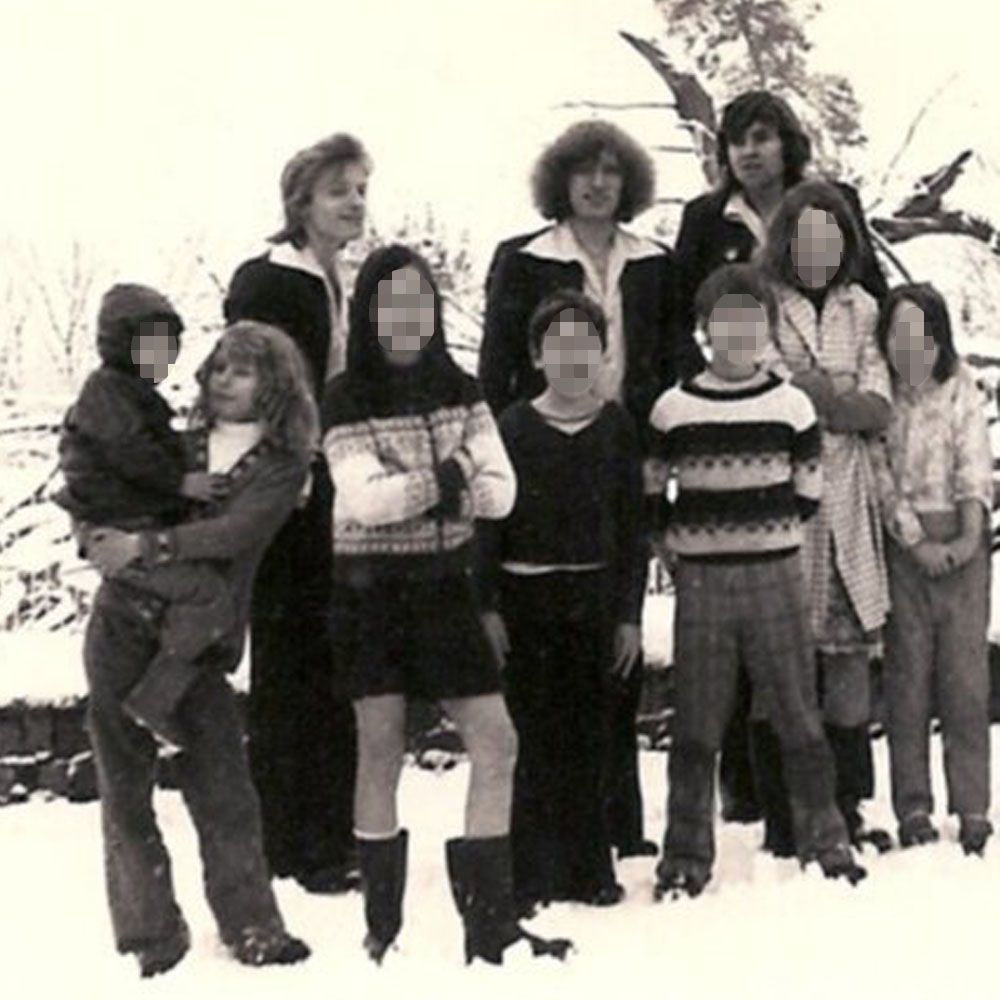
There is only one photograph of Gail Marshall as a child, and it was taken at the school - she is holding Jack Mount’s granddaughter
There is only one photograph of Gail Marshall as a child, and it was taken at the school - she is holding Jack Mount’s granddaughter
There were about 15 pupils at the school when Gail joined in 1975, not long after Mount’s trial. Several members of his family worked there, including his daughter, Tricia.
“There were animals, a swimming pool and all the staff were friendly,” Gail recalls. “If it wasn’t for what happened to us, it would have been a nice place.”
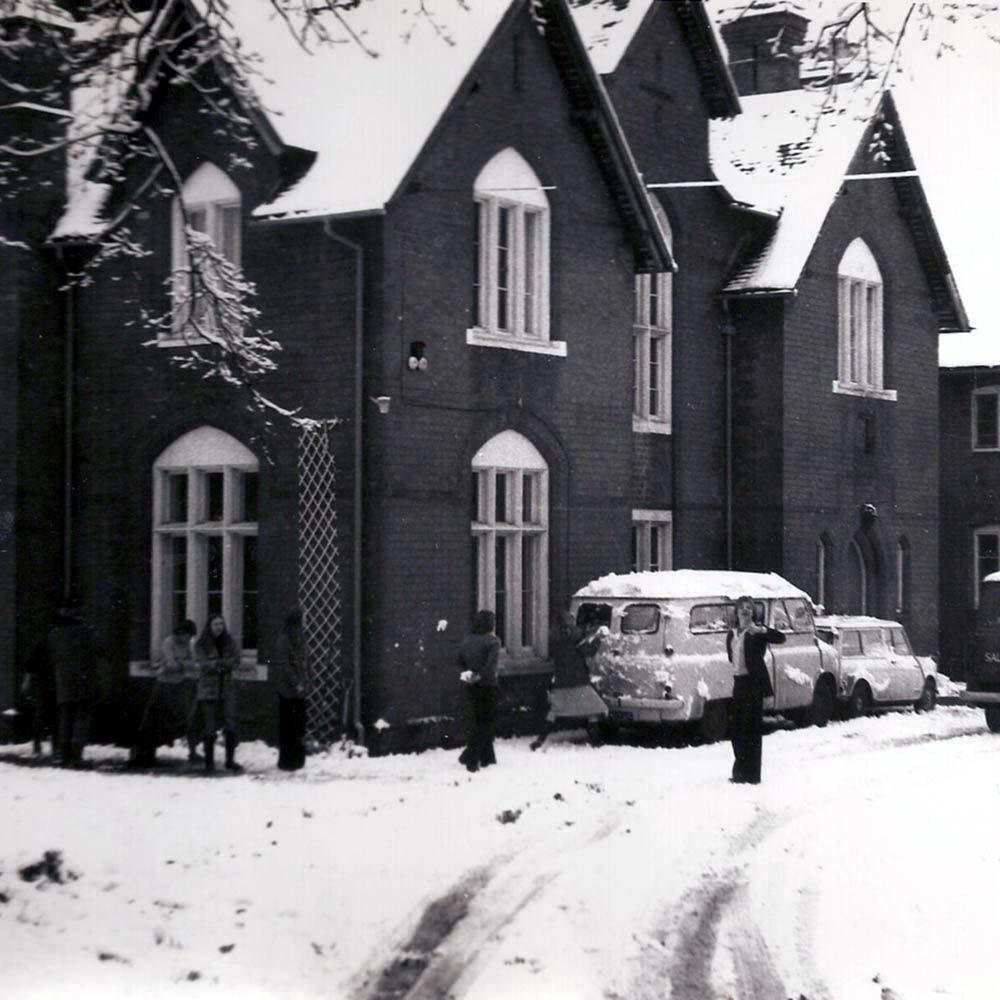
Gail remembers many of the staff fondly and says the school seemed like a nice place in the beginning
Gail remembers many of the staff fondly and says the school seemed like a nice place in the beginning
Mount wasted no time in making regular trips to Gail’s dormitory at night.
“He’d come in, ask if you were all right. And then he’d put his hand up your nightie. Jack Mount came across as a nice guy. Now I know that [was] his way of getting to you.”
Marina Musker, who arrived a year later in 1976, says Mount became increasingly brazen.
“He’d come in and carry the girls out of the dorm - we’d all be there wondering who he’d pick tonight. Sometimes he’d take more than one, that was when we knew he was getting greedy.”
Mount seemingly became more emboldened as time went on, carrying out attacks in more public places, where staff members could stumble upon him.
“He sat me on the wall in the greenhouse and had sex with me,” says Gail. “And then the gardener walked in and he quickly pulled away.”
On another occasion, in the school hall, he raped a fellow pupil and forced Gail to watch.
“Maybe I thought it was normal. All my life, I’d been battered and abused - I had no idea what was right or wrong.”
Marina Musker, leaning on the sign at far right, was beaten by Mount on several occasions
Marina Musker, leaning on the sign at far right, was beaten by Mount on several occasions
Marina felt similarly confused - initially mistaking Mount’s interest in her for kindness.
“That was the first place he got me,” she says of an attack at the chicken coop as she collected eggs. “I think in some ways, I was pleased he was paying me attention. I knew it was wrong, but he properly groomed me. He abused me most days.”
Being allowed to leave Brookside for the holidays was a privilege to be earned and Marina was never allowed to return home to Merseyside - she presumes because Mount suspected she might tell her family the truth. When she tried to tell her father on the phone instead, she heard a click on the line. Almost as soon as she hung up, Mount appeared and beat her black and blue.
“I got jumped all over. The pain in my ribs and my arms was horrific. After that, I was watched constantly because they knew I’d want to run away.”
There was no hiding what had happened to Marina. A member of staff, already suspicious at what was going on at the school, was shocked when she saw the state of her.
Jean Tantrum did cleaning and odd jobs at Brookside - a mother herself, she doted on the girls, and they were just as fond of her. She wrote down her phone number on a piece of paper and gave it to Marina and Gail.
“She said, ‘if you ever need me, give me a call’ . She didn’t say so, but she must have known what was going on,” says Gail.
Marina and Gail credit Jean Tantrum with saving them
Marina and Gail credit Jean Tantrum with saving them
It was in the dreaded blazer cupboard that Marina heard Gail sobbing in the bathroom next door and the pair made their escape plan: “I shouted to her, ‘we are getting out of here’.”
They fled as soon as they could, running through the woods to the main road where they called Mrs Tantrum from a phone box. Hours later, they were examined at the police station.
“I just remember them saying ‘her hymen’s broken’. I didn’t know what a hymen was,” says Gail.
Jean died last year aged 89. Her family described her as a “person of principle” who would want to put right any wrong she saw.
“She always believed the girls,” her daughter says. “She said they could not have made it up.”
“Thanks to Mrs Tantrum we never went back to the house of horror,” says Gail.
The girls’ accounts led to Mount being charged in 1979 - for the third time in 10 years. It should have marked the end of their ordeal, but in some ways it was just the beginning.
The charges involved offences against six girls, including sexual intercourse with a female under 13, a female under 16 and indecent assault. But for reasons they do not know, Gail and Marina were never asked to give evidence in the trial at Stafford Crown Court.
“We had told police exactly what was going on. Why weren’t we included? The evidence was there,” says Gail.
The case was high profile and made newspaper headlines that make for shocking reading by today’s standards. “Gymslip girls tell of school orgies”, one report in the Sun stated, while others referred to the girls as being part of Mount’s “love squad”, up for “three-in-a-bed sex sessions”.
The court heard victims were as young as eight but they were portrayed as willing participants and “obsessed with sex” by the defence.
The prosecution’s argument was not dissimilar: “There is no doubt some girls positively enjoyed what was going on. But these girls have to be protected whether they like it or not.”
Children said the abuse took place all over the school grounds
Children said the abuse took place all over the school grounds
After hearing the girls’ evidence, Justice Stephen Brown ruled they had made up the allegations. He directed the jury of seven men and five women to find the head teacher not guilty.
Afterwards, a relieved Mount maintained his innocence.
“Now I hope the police will believe me. The allegations were disgusting and ridiculous,” he told reporters, vowing to once again take legal action against West Mercia Police. “It’s been one long nightmare for me and my family.”
This time, though, Jack Mount closed the school. It never reopened.
The charges involved offences against six girls, including sexual intercourse with a female under 13, a female under 16 and indecent assault. But for reasons they do not know, Gail and Marina were never asked to give evidence in the trial at Stafford Crown Court.
“We had told police exactly what was going on. Why weren’t we included? The evidence was there,” says Gail.
The case was high profile and made newspaper headlines that make for shocking reading by today’s standards. “Gymslip girls tell of school orgies”, one report in the Sun stated, while others referred to the girls as being part of Mount’s “love squad”, up for “three-in-a-bed sex sessions”.
The court heard victims were as young as eight but they were portrayed as willing participants and “obsessed with sex” by the defence.
The prosecution’s argument was not dissimilar: “There is no doubt some girls positively enjoyed what was going on. But these girls have to be protected whether they like it or not.”

One newspaper report described Mount as "dapper"
One newspaper report described Mount as "dapper"
After hearing the girls’ evidence, Justice Stephen Brown ruled they had made up the allegations. He directed the jury of seven men and five women to find the head teacher not guilty.
Afterwards, a relieved Mount maintained his innocence.
“Now I hope the police will believe me. The allegations were disgusting and ridiculous,” he told reporters, vowing to once again take legal action against West Mercia Police. “It’s been one long nightmare for me and my family.”
This time, though, Jack Mount closed the school. It never reopened.
Tricia
Tricia Mount recalls a somewhat happy childhood, albeit one that was controlled by her strict and authoritarian father. She had just turned 11 when she says he began visiting her bedroom once her brothers and sister were asleep.
“He never said anything,” she says. “He would stand by the bed, take my hand and make me do things to him. When I could hear him coming upstairs, I’d just have this feeling of dread. I remember thinking, ‘if I say anything, my life will be destroyed’. So I buried it.”
Being abused by the father she loved and trusted left her extremely conflicted and confused.
“It just couldn’t be wrong because he was my father,” she says she reasoned. “I can remember trying to think to myself… ‘what was it all about? Maybe fathers do this, prepare you for adult life?’ I was trying to justify it.”
Tricia was a child when her father began abusing her
Tricia was a child when her father began abusing her
Tricia says she was abused on several occasions in the early 1960s, but does not recall it happening beyond the age of about 12. She tried to forget what he had done but remained under his control, much like the rest of the family. Even after divorcing Tricia’s mother, Mount kept Beth close, controlling her finances for the rest of her life and inviting her and their children to family gatherings with his second wife, Elizabeth.
“He was very much the boss in our house,” says Tricia. “He had such a hold over people psychologically. He was so powerful. You just didn’t say things against him.”
When she was older and her father suggested she worked at Brookside, Tricia agreed, becoming one of several family members he employed. It was, she now believes, one of the ways he managed to hide his wrongdoing - by hiring people he already wielded power over.
Tricia doesn’t remember the abuse happening beyond the age of about 12
Tricia doesn’t remember the abuse happening beyond the age of about 12
She maintains she was stunned when the first allegations emerged in the early 1970s about her father molesting boys. She says she had never seen or suspected a thing, despite her own traumatic experience.
“I was shocked. I didn’t believe it. I just couldn’t connect it all,” she says. “It was so different from what he’d done to me [because they were boys].”
Like the rest of the Mount family, Tricia felt compelled to support her father during the early court cases. Only when the school began to accept girls were her suspicions raised, particularly when she saw him with a child he wasn’t supposed to be with. But the terror she felt at revealing anything about her own abuse forced her to remain silent.
Only 30 years later, when her father was much older and his power over her had waned, did Tricia feel able to tell her relatives, who believed her, to her relief. Then in 2012, she went to Ludlow Police Station - the place where so many children’s reports had fallen on deaf ears 50 years before - and reported her 93-year-old father.
As a young adult, Tricia worked at the school
As a young adult, Tricia worked at the school
The fact it took Tricia several decades to feel able to speak out is typical of victims of non-recent abuse, says Julie Taylor, professor of child protection at the University of Birmingham.
“It’s very, very common - it’s why people get away with it,” she says. “They have this coercive control and power over their victims - ‘I’ve given you a job, I’ve brought you up OK - you’re not going to speak out now’.
“In some interactions with her father as an adult, Tricia will have still felt like a child.”
The guilt of not saying anything sooner has tormented Tricia for years. The mother of two believes she could have prevented pupils becoming victims.
“I regret it so much. I was groomed from an early age,” she explains. “I feel dreadfully awful. I feel [the children] wouldn’t have gone through it if I’d have said something.”
‘Yewtree Effect’
Gene Edwards first heard the name Jack Mount in 1999, when he was tasked with interviewing ex-Brookside pupils whose names had come up during one of Greater Manchester’s largest ever child abuse investigations. More than 200 men had claimed they had been molested in the city council’s care during the 1960s, ‘70s and ‘80s - and several said the abuse continued when they were sent to Shropshire.
When their names were passed to West Mercia Police, it was to Gene they again recounted their stories. The details were strikingly similar: the locations of the attacks, the way Mount used fellow victims to entice new ones, the beatings and the blazer cupboard.
Seven former pupils were willing to testify against Mount, who was by then 79. But when the evidence was sent to the Crown Prosecution Service, it concluded “there was insufficient evidence to provide a realistic prospect of conviction for any offences” and the case was again closed. Some of the witnesses were furious at the decision - and at Gene.
“I had to get back in touch with all these people and tell them it was going nowhere,” he says. “It’s one of my worst nightmares, delivering information like that - I was gutted for them.”
The watershed moment in the treatment of victims of non-recent abuse would not come until 13 years later.
In 2012, Jimmy Savile’s prolific sex abuse against children - and the failure of various organisations, including the BBC, to tackle it - came to light. The subsequent police investigation, Operation Yewtree, saw several high-profile people convicted, including Rolf Harris, Gary Glitter and Max Clifford.
Police forces around England reported a surge in complaints about non-recent child abuse from victims buoyed by the bravery of those prepared to speak. It was the “Yewtree effect” that spurred Tricia on to report her father the same year. But again, prosecutors did not believe there was a realistic chance of conviction.
“They said there was no corroborating evidence,” she says. “I thought it was all over.”
The children of Mount’s first marriage disowned him after learning of Tricia’s abuse
The children of Mount’s first marriage disowned him after learning of Tricia’s abuse
The rumours surrounding Mount, however, persisted. Ex-pupils began posting about their abuse on a Facebook page dedicated to the school. Claims of mistreatment were discovered on blogs. It prompted West Mercia Police to begin building its biggest case against Mount.
Gene had retired as a constable but was working as a civilian officer when he and Det Con Gavin Smith began speaking to former pupils all over the country, many of whom were understandably distraught.
“We knocked on the door of a 50-year-old truck driver. He just broke down and said ‘I know why you’re here’,” says Gavin.
Among those willing to speak were Philip, Amadu, Gail and Marina. But there were countless others who had never met each other, and who had attended the school sometimes years apart, whose accounts of what happened repeated the same details.
“It is my belief that they were telling the truth, it was their mannerisms and the modus operandi - it was so, so similar in every story,” says Gene.
Gavin adds: “We’d come out and look at each other and just say ‘Jesus - how did [Mount] get away with it?’”
Gavin Smith believed Mount “painted himself to be the victim”
Gavin Smith believed Mount “painted himself to be the victim”
They found 19 people they could put forward in the case against Mount, including Tricia. Officers went to his home in south Devon and took him to be questioned at a police station, where Gavin was initially surprised at the old man’s energy.
“He came across as this sprightly, elderly man, you’d never have thought he was in his 90s. But as soon as he was interviewed, he completely changed. He was very manipulative.”
Mount, who suddenly seemed feeble and forgetful, denied every single allegation put to him.
“He would not concede to any of it. He said he couldn’t remember victims’ names and denied everything,” says Gavin.
“He even chastised them - he said it was a conspiracy. To make it up would have had to have been a conspiracy of massive proportions. I never doubted what these people were saying. It was identical.”
This time, the Crown Prosecution Service charged Mount with 50 sex abuse offences against children. His trial was scheduled at Barnstaple Crown Court, near his home, due to his age.
At 96, he was the oldest person ever to face historical sex abuse charges in a British court.

Control
The sight of Jack Mount in court was a pitiful one. He shuffled in on the arm of his wife, and apparently needed a carer to help him to his seat and explain what was being said. He appeared a doddery, confused old man - the same one police encountered in the interview room when the tape began recording.
Hours of legal argument before the trial discussed how such an elderly defendant, who by now had been diagnosed with Parkinson’s disease, would cope with evidence from 19 alleged victims.
Judge Geoffrey Mercer ruled the case would be split into three trials to make the process more manageable for Mount. It was a crushing blow - no single jury would hear from every single witness, dramatically reducing the overall weight of evidence.
For the second time, Gail and Marina were told they would not be able to give evidence - this time because statements they had made in the 1970s could not be traced, despite Gail’s social care records confirming she had been “interfered with”.
“I just broke down,” she recalls. “I proper sobbed. I’d wanted to look him right in the face and tell him what he did to me.”
Gail’s social care records referenced that she had been “interfered with”
Gail’s social care records referenced that she had been “interfered with”
For three days, Tricia’s life was pored over. Letters she had written to her father over many years were scrutinised, the contents of her diaries laid bare. Family photographs, including one of them smiling together at her graduation, were shown to jurors. The defence argued the evidence showed mutual love and affection.
“I was absolutely torn apart - I was thrown to the wolves,” says Tricia, now 69. “I told the court I loved, respected and trusted [my father] - which was true, at that time. But I’d been groomed from an early age. It felt like it was me on trial, not Jack.”
Tricia believes her father thought he had “rescued” vulnerable children
Tricia believes her father thought he had “rescued” vulnerable children
When Mount took the stand, he coughed repeatedly throughout his evidence, telling the court Parkinson’s had affected his speech. While he was in the dock, Tricia felt her father was in charge of her life again.
“It made me feel sick, to imagine him there, portraying himself as the loving father who can’t understand why the daughter he did so much for had turned on him. I couldn’t believe the jury would be able to see through all that. He’d be so convincing.”
Tricia’s intuition was, devastatingly, spot on. It took the jury three days to find Mount not guilty of abusing his daughter.
“I was distraught. Why did the judge decide to split the trial? That is what destroyed it for me. If we’d all been able to go in together and face a jury... nobody could have given an acquittal on that.”
Six months later, the second trial began. It involved four complainants, including Amadu, who by then had spent more than 20 years as a social worker helping vulnerable children. He didn’t believe Mount’s claims of fragility, which had convinced the court to sit for just two 30-minute sessions a day.
“I knew he remembered. He had his eyes closed. I thought... look at me. I have an Armani suit, a nice house, money in the bank. And I haven’t gone away. The power was with me, I felt sorry for him.”
The jury returned not guilty verdicts on three charges, but could not reach a decision on five others.
Amadu was a social worker for 23 years, helping children who found themselves in the same situations he did as a child
Amadu was a social worker for 23 years, helping children who found themselves in the same situations he did as a child
The CPS requested a retrial, but Judge Mercer, who has since died, ruled Mount was too frail to face further legal proceedings. Not only would there not be a retrial, but the third trial would not take place at all: Mount was again in the clear.
“All this time, all this information, and all these people who had been hurt - and the establishment were still questioning us,” says Amadu.
“They made me feel like I wasn’t worth it [back] then, and I wasn’t worth it now. He got away with it again and again.”
Jack Mount lived another three years. He died, aged 100, on 25 June 2019.
His son by his second marriage rejected all the allegations made against his father. He did not want to add anything to this article on his behalf.
Failing to pin anything on Mount is one of the biggest disappointments of his 30-year career, says Gene, who has since retired.
“Over that time I saw a lot but the Jack Mount case hit hard because we failed so miserably at it - it should have been dealt with a long time ago.”
Gavin spoke to between 30 and 50 victims on the case, many of whom did not want to give evidence. The detective believes there are many more victims than the ones he and Gene were able to trace.
“I never expected it to be so big. Mount is certainly up there among the worst paedophiles in this country - I would expect there to be 60 to 100 victims.”
Philip had been due to give evidence in the third trial. Hearing Mount would never face legal proceedings again was shattering.
“I was gutted I didn’t get my chance to have my say - we were pushed back into a corner like we were children again. Mount knew how to play it, he got what he wanted. What he did was on a Jimmy Savile-scale.”
Marina, who has a son and daughter, has praised all those who have spoken out
Marina, who has a son and daughter, has praised all those who have spoken out
For Marina, telling her story now is some consolation for being denied her chance to speak in court. She has been traumatised by what happened and has to sleep with the television and lights on.
“The school was a hellhole of abuse, Mount should have gone to prison. We were abused - it happened.”
But she hopes that coming forward will encourage other victims of Mount to do the same.
“I want to tell them I understand and I know how difficult their lives will have been… [that] they are so brave.”
Philip has been back to the school grounds on a number of occasions to try to come to terms with what happened
Philip has been back to the school grounds on a number of occasions to try to come to terms with what happened
Gail received some acknowledgement of what happened to her: in 2016, she was awarded £10,000 by the Criminal Injuries Compensation Authority. Her care records had shown social services in Leeds warned Nottinghamshire County Council not to send her to Brookside, owing to the many allegations made about Mount in the late 1960s and early ‘70s.
It was, however, cold comfort for the mum of four, who has struggled with her mental health, been in trouble with the police and suffered violent relationships. But she has found hope in her eight grandchildren.
“When I look at the bigger picture, now, I look at my life, and I think it wasn’t my fault. I was just a kid.”
Though it can never undo what he went through, Philip feels a weight has been lifted since deciding to waive his anonymity and tell his story.
“I’m glad I can now be heard and that people will know what a monster he was,” he says. “The police would not listen back then, and the system would not listen - but I survived him.”
If you have been affected by this article, there is a range of help and support available at BBC Action Line. To contact the BBC about the story, email newsonline.westmidlands@bbc.co.uk
Credits
Author: Rebecca Woods
Photography: Gavin Dickson
Photo credits: Alamy, Philip Fowler, Historic England, Tricia Newbold, Press Association, Shropshire Archives, SWNS
Editing and production: Lauren Potts
Editorial support: Ben Jeffrey
Published on 28 October, 2020
